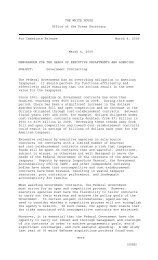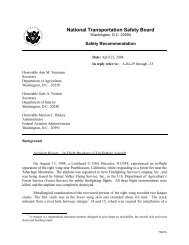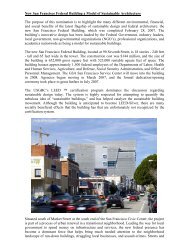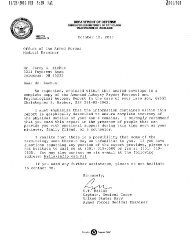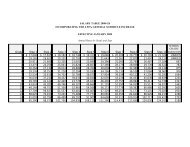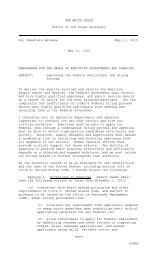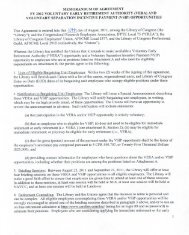Accenture's fifth annual global e-government study
Accenture's fifth annual global e-government study
Accenture's fifth annual global e-government study
Create successful ePaper yourself
Turn your PDF publications into a flip-book with our unique Google optimized e-Paper software.
Driving value through eGovernment<br />
Improving costeffectiveness<br />
Implementing new, high-performance business<br />
models enabled by eGovernment technology will<br />
allow <strong>government</strong>s to improve cost-effectiveness.<br />
By improving the integration of services within and<br />
across agencies, <strong>government</strong>s can not only meet<br />
stakeholder expectations through service improvements,<br />
they can also improve cost-effectiveness by:<br />
• Automating services, resulting in reduced administration.<br />
Government employees can then focus<br />
their attention on higher-value tasks.<br />
• Integrating services, resulting in the elimination of<br />
duplicated efforts and greater cost-effectiveness.<br />
Duplication of effort on the part of a citizen or<br />
business reduces value by not meeting their service<br />
delivery expectations. For <strong>government</strong>,<br />
duplicated efforts means wasted resources.<br />
Canada’s Record of Employment Web service shows<br />
how eGovernment can add value by delivering both<br />
improved time and cost savings outcomes to the<br />
<strong>government</strong> through automation. It takes an average<br />
of 10 to 15 minutes to create a paper record of<br />
employment form. In the same amount of time, 300<br />
to 450 record of employment forms can be issued<br />
online. In terms of processing, the paper transaction<br />
can take up to seven days whereas the online version<br />
takes only a few hours. The cost savings are<br />
significant.<br />
Assessing value to<br />
set strategy<br />
To a considerable extent eGovernment strategies have<br />
been an “act of faith” on the part of <strong>government</strong>s.<br />
Some benefits in terms of increased automation and<br />
improved access have been relatively obvious. Others<br />
have been harder to quantify—in particular, the<br />
general belief that providing online access to <strong>government</strong><br />
services must always be a good thing in<br />
and of itself. Applying the concepts of the Accenture<br />
Public Sector Value Model should bring a rigor to<br />
future eGovernment strategies that has been lacking<br />
previously. We believe effective eGovernment strategies<br />
will address three key questions in the future:<br />
1. How will the strategy improve the performance<br />
of <strong>government</strong> agencies in the delivery of their<br />
core statutory duties<br />
2. How will the strategy meet rising stakeholder<br />
expectations of <strong>government</strong> services<br />
3. How will the strategy contribute to improved<br />
cost-effectiveness in the provision of <strong>government</strong><br />
services<br />
Effective eGovernment strategies will seek to add<br />
value in all three dimensions and move <strong>government</strong>s<br />
toward their goal of high performance.<br />
40





